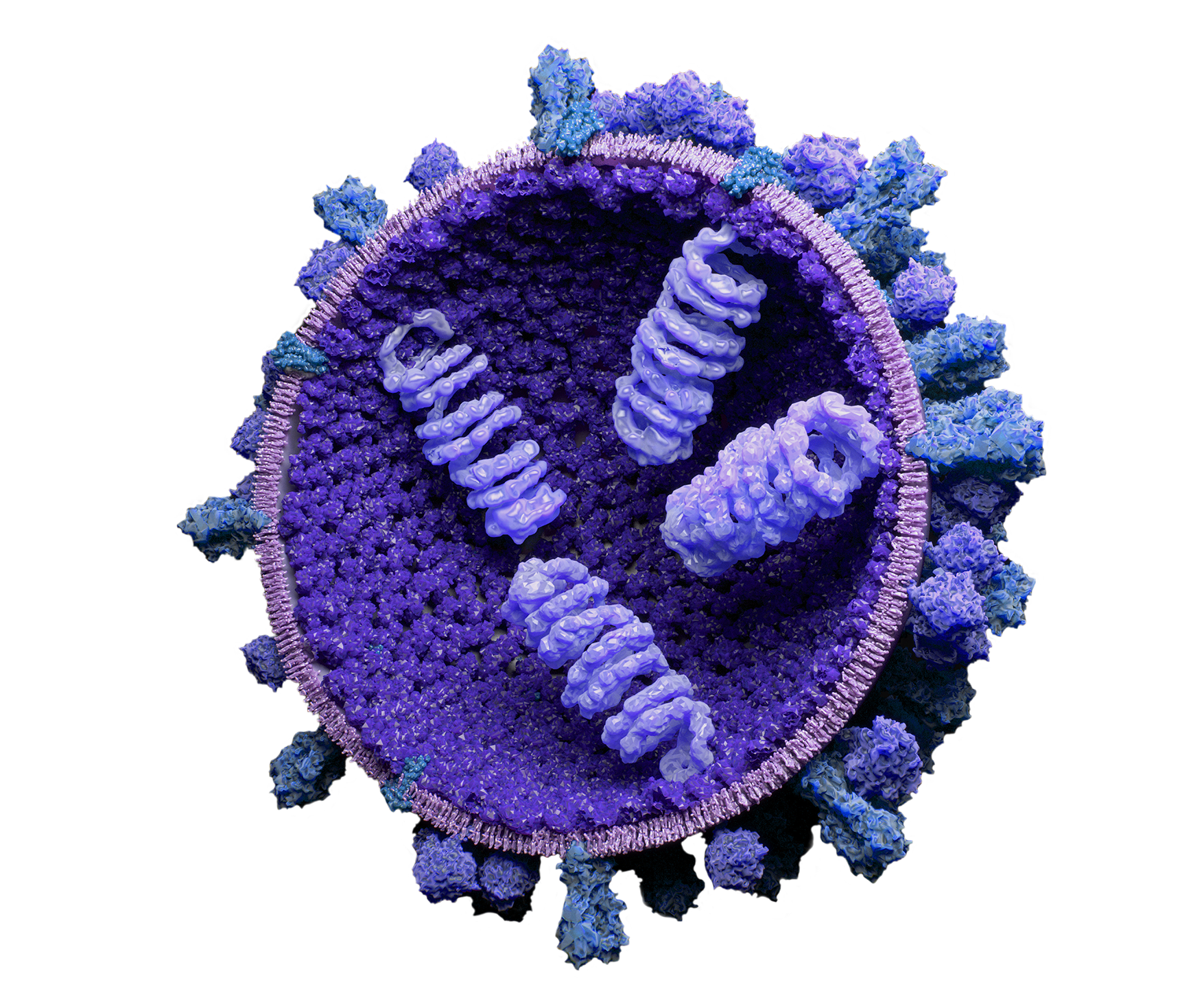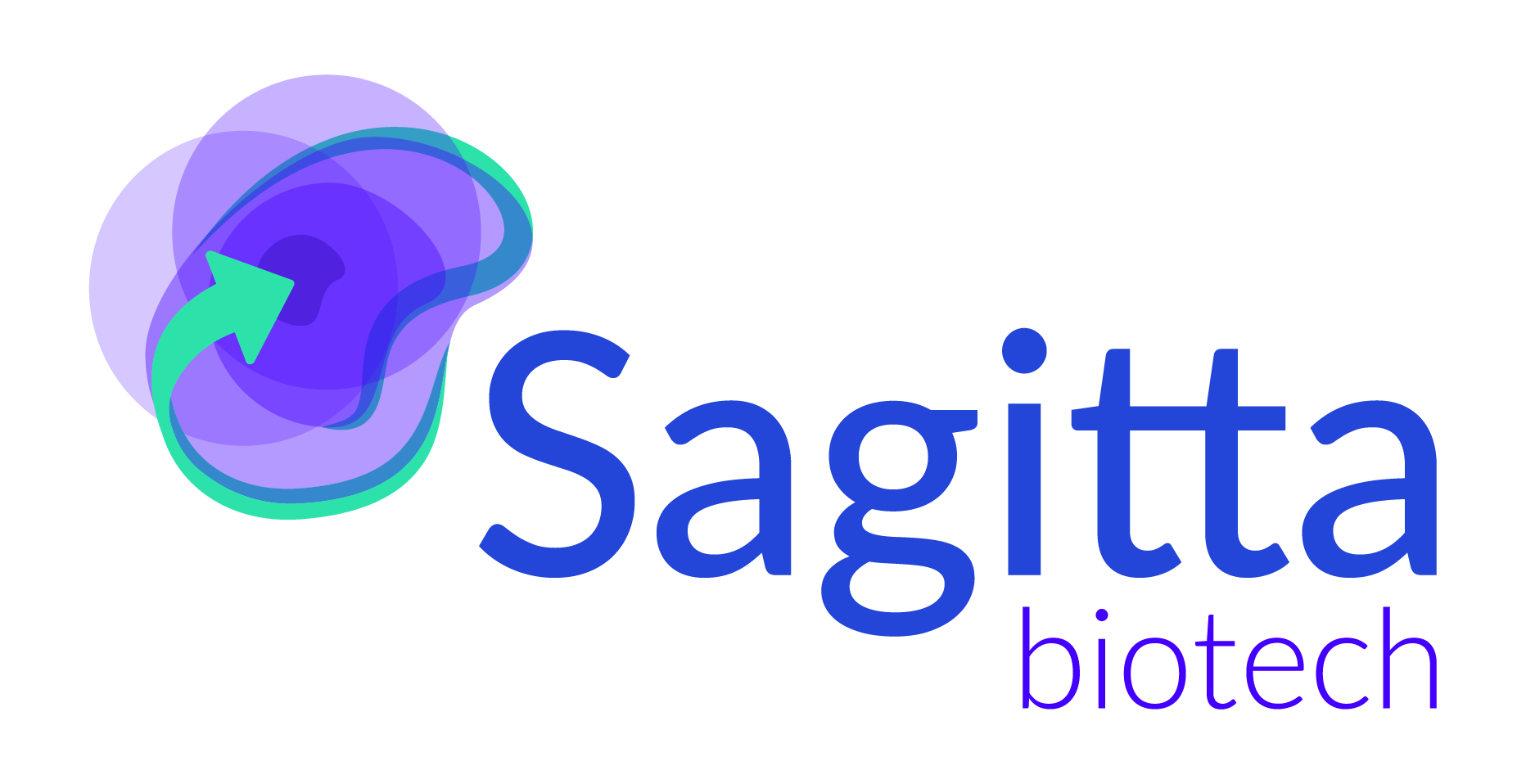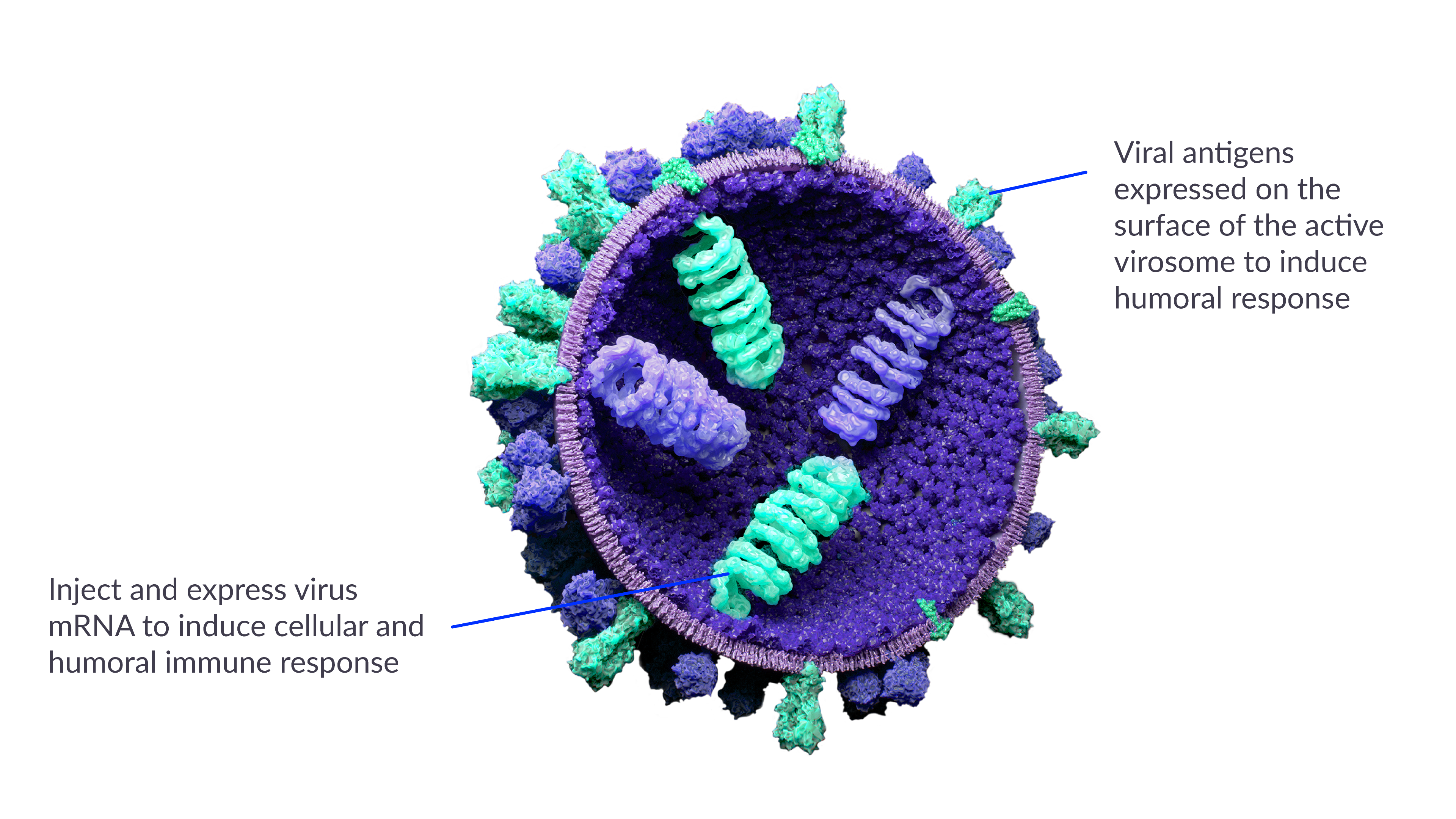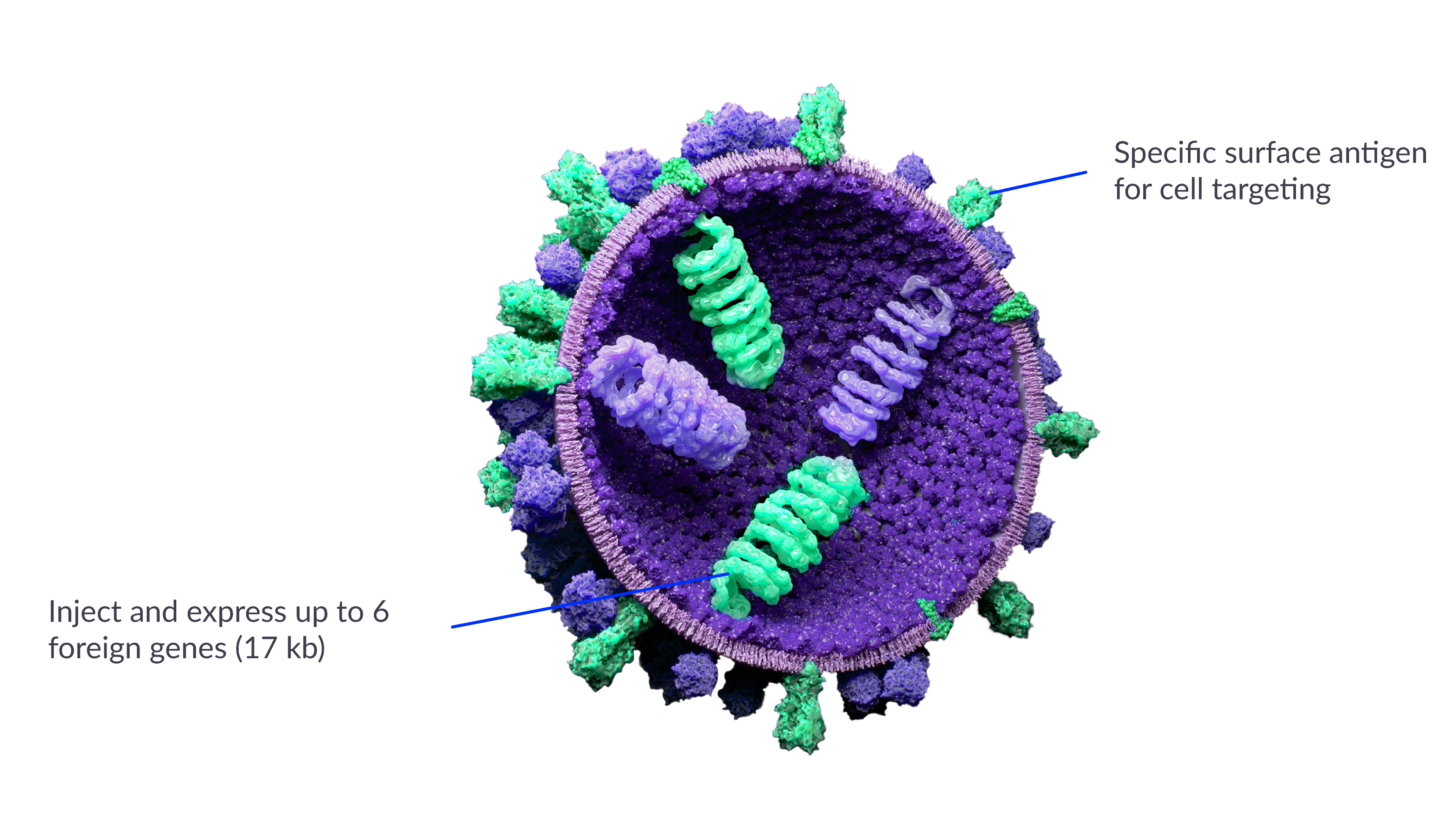Innovative active virosomes to tackle unmet medical needs in infectious disease and oncology

Unique benefits

Efficient
Excellent humoral and cellular immunogenicity
Proof of concept on several viruses

Safe
Non-replicating
Low reactogenicity
Produced on human cells

Flexible
Can carry up to 6 foreign genes (17kb), expressed on virosome surface or injected in target cells
Develop multivalent vaccines & complex oncolytic viruses quickly

cost-effective
Large-scale manufacturing on measles processes (low CAPEX)
Target COGs below $1/dose
Unique benefits

Efficient
- Excellent humoral and cellular immunogenicity
- Proof of concept on several viruses

Safe
- Non-replicating
- Low reactogenicity
- Produced on human cells

Flexible
- Can carry up to 6 foreign genes (17kb), expressed on virosome surface or injected in target cells
- Develop multivalent vaccines & complex oncolytic viruses quickly

cost-effective
- Large-scale manufacturing on measles processes (low CAPEX)
- Target COGs below $1/dose
Applications of the virosome technology
Fast and flexible vaccine production
Ensure pandemic-preparedness with a fast development cycle of a few weeks.
- Double immunization route to trigger MHC-II expression
- Inject mRNA to express viral antigens in cell
- Virosome surface antigen triggers B-Cell response
- Multivalent: simultaneously vaccinate against different strains by inserting up to 6 genes (17kb) in one vaccine
- Highly effective: can elicit humoral and/or cellular immune response
- Fast and scalable production in existing manufacturing facilities: particularly beneficial for developing countries
Targeted immunotherapy treatments for oncology
Specific cell targeting based on tumor surface receptors allows for personalized oncology treatments.
- Express tumor-specific receptors on the vector surface, to be able to specifically target cells carrying relevant markers
- Induce selective tumor cell death via smart payloads, such as apoptosis inducers or checkpoint inhibitors
Targeted active virosomes for gene therapy
Target specific cells based on cell surface receptors for gene therapy.
- Express specific receptors on the vector surface, to be able to specifically target cells carrying relevant markers
- Inject various genes, up to 17kb, on self-replicating RNA
What is active virosome technology?
Sagitta Biotech is developing an active virosome technology based on a highly-modified measles virus. It is specifically designed to be non-replicating and to display no measles surface antigens. This makes it safe and effective since it is not neutralized by pre-existing immunity to measles.
The vector is highly flexible and can be modified easily using a validated cassette system. Diverse payloads of non-measles genes can be inserted (up to 17kb or 6 genes) on a self-replicating RNA strand. These genes can be expressed on the vector surface (to trigger humoral immunity), and expressed and translated in the target cell, thereby inducing both a CD4+/CD8+ response and a humoral response through the MHC-I pathway.
We are opening our platform to collaborations and co-development with biotech and pharma partners.
What is active virosome technology?
Sagitta Biotech is developing an active virosome technology based on a highly-modified measles virus. It is specifically designed to be non-replicating and to display no measles surface antigens. This makes it safe and effective since it is not neutralized by pre-existing immunity to measles.
The vector is highly flexible and can be modified easily using a validated cassette system. Diverse payloads of non-measles genes can be inserted (up to 17kb or 6 genes) on a self-replicating RNA. These genes can be expressed on the vector surface (to trigger humoral immunity), and expressed and translated in the target cell, thereby inducing both a CD4+/CD8+ response and a humoral response through the MHC-I pathway.
We are opening our platform to collaborations and co-development with biotech and pharma partners.
About Sagitta Biotech
About Sagitta Biotech
Sagitta Biotech was incorporated in 2019 to develop and validate active virosome technology for vaccine development and targeted cancer and gene therapies. We are currently developing a tetravalent influenza vaccine to simultaneously vaccinate against multiple strains of the virus.





